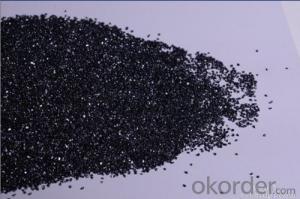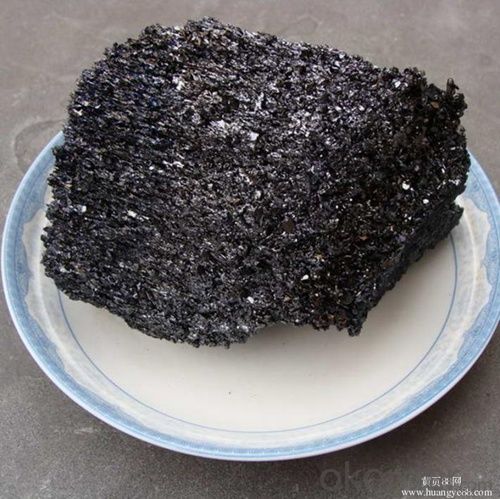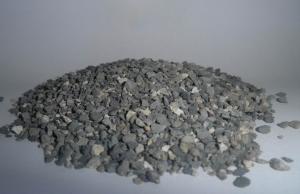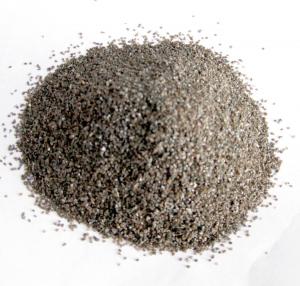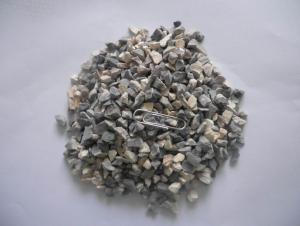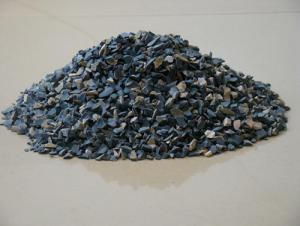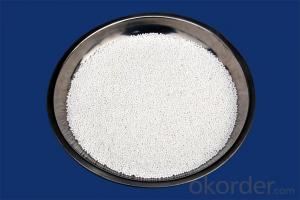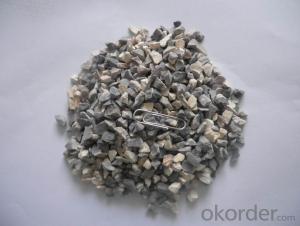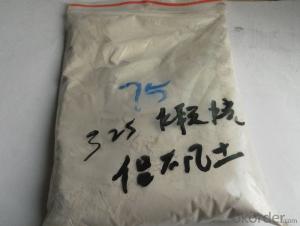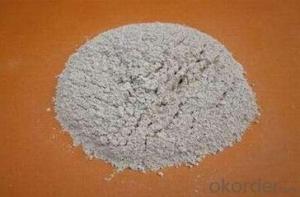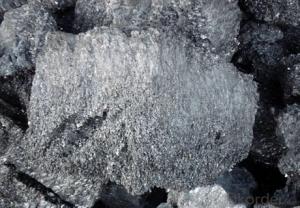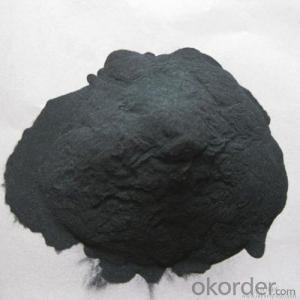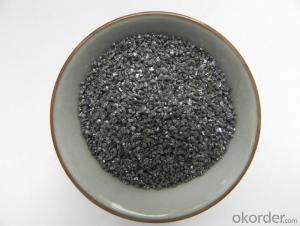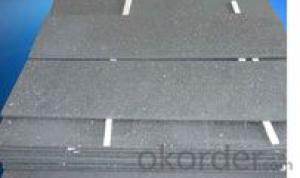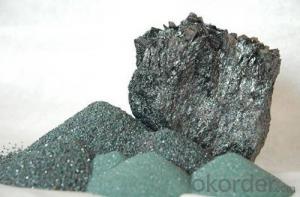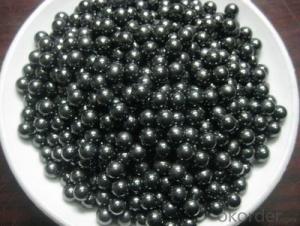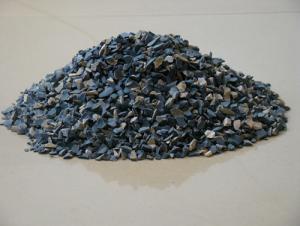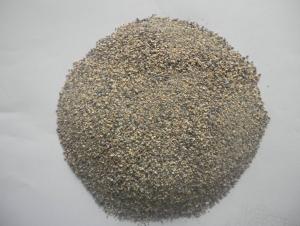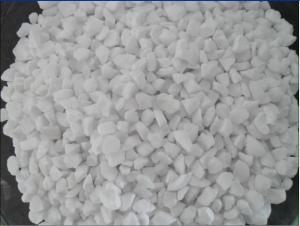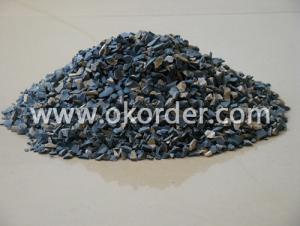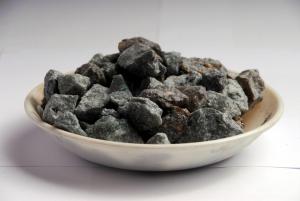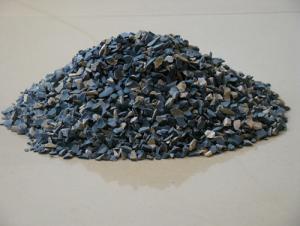High Bending Strength Raw Materials for Refractory Silicon Carbide Pipe
- Loading Port:
- China main port
- Payment Terms:
- TT OR LC
- Min Order Qty:
- 25 m.t.
- Supply Capability:
- 2000 m.t./month
OKorder Service Pledge
OKorder Financial Service
You Might Also Like
Quick Details
| Place of Origin: | Shandong, China (Mainland) | Type: | Ceramic Tubes | Application: | Industrial Ceramic |
| Brand Name: | CNBM | Color: | Black | Application temperature: | 1380 |
| SiC content: | 85% | Material: | Silicon Carbide ( SiC ) | Si content: | 15% |
| Moh's hardness: | 13 |
Packaging & Delivery
| Packaging Details: | standard export packing |
| Delivery Detail: | according to qty of order,normally 30 days |
Silicon Carbide Pipe has superior characteristics of high temperature
tolerance, oxidation resistance, thermal conductivity, corrosion resistance, long time service life, etc.
The series of products are widely used for measuring temperature in the fields of ceramic, metallurgy,
chemical industry, etc.
Technical Parameter of Reaction Bonded Silicon Carbide
item | unit | data |
temperature of application | C | 1380 |
density | g/cm3 | >=3.02 |
open porosity | % | <0.1 |
bending strength | Mpa | 250(20C) |
Mpa | 280(1200C) | |
modulus of elasticity | Gpa | 330(20C) |
Gpa | 300(1200C) | |
thermal conductivity | W/m.k | 45(1200C) |
coefficient of thermal expansion | K-1*10-6 | 4.5 |
rigidity | 13 | |
acid-proof alkaline | Excellent |
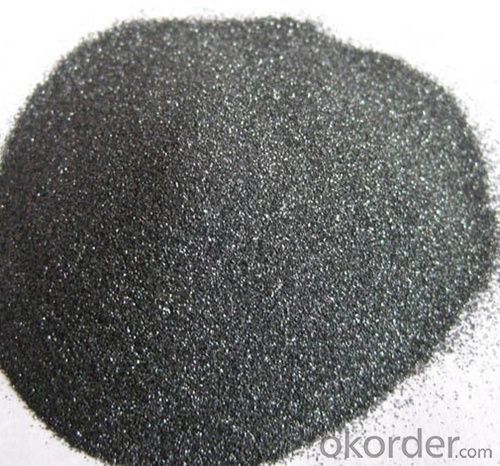
Trade & Market
| Main Markets: | Domestic Market Eastern Asia North America Oceania Southeast Asia South Asia Western Europe Mid East Southern Europe | |
| Total Annual Sales Volume: | US$2.5 Million - US$5 Million | |
| Export Percentage: | 51% - 60% | |
| Trade Shows: | CERAMITEC 2009, CERAMITEC 2012 |
- Q: who knows the fire resistant levels of fireproofing glass?
- Fireproofing glass is a kind of special glass which can keep its integrity in the regular fire resistance test, and it can be divided into three classes: fireproofing glass,fireproofing glass A class is a kind of fireproofing glass that can satisfy the requirements of refractory integrity, fire resistance and thermal insulation. Including composite flameproof?glass and perfusion type fireproofing glass . This kind of glass has the properiyies of transmittance, fireproofing ( smoke insulation, fireproofing, and keeping out thermal radiation), sound insulation, shock resistance, and it's suitable for steel and wooden fire door of building decoration, windows, varnishing, partition walldaylighting?roof,ceiling?screen,perspective floor and other construction components demading for transparency and fireproofing. Class B, it's a kind of fireproofing glass that can satisfy the requirements of refractory integrity, refractory and thermal insulation at the same time. Such kind of fireproofing glasses mostly are composite fireproofing glasses and has characteristics of transmittance,fireproofing and smoke insulation. Class C, it's a kind of monolithic fireproofing glass that only satisfies the requirements of refractory integrity. This kind of glass has characteristics of transmittance, fireproofing, smoke insulation and high strength,etc. It's suitable for fireproofing glass partition wall, fire Windows, outside curtain wall and other places without insulation requirements. hope it can help you.
- Q: How is the division of the fire resistant level of the rock wool board?
- It's like this: China's national standard GB8624-97 divides the combustion performance of building materials into the following grades. Level A: non-flammable building materials. Level B1: flame-retardant building materials. Level B2: combustible?building?materials. Level B3 flammable building materials. section II Combustion performance and fire endurance of building components. First, The combustion performance of buildings of building components. The building is composed of components, such as foundation, walls, lubrication columns, beams, plates, roofs and stairs, ect. Building components are constituted by the building materials, whose combustion performance depends on the combustion properties of the used construction materials. Section One Combustion performance of building components. The building components are divided into three categories according to their combustion properties. First, non-combustible component: the component made by incombustible?materials. The incombustible?material refers to that when meeting the Oxygen in the air, it will not burn.
- Q: Who knows what is the external wall thermal insulation materials for level A fireproofing?
- external wall thermal insulation materials level A fireproofing: Incombustible building material is a material that does not occur any burning. Class A1: Monomer inorganic non-combustible. Noncombustible means no open fire. Class A2: Non-flammable organic compound is namely composite materials and non-flammable, the amount of smoke must be qualified. Class B1: nonflammable building material: non-flame material has good flame resistance. It is difficult to fire under the condition of open fire in the air or high temperature, and it is not easy to quickly spread, and when the combustion?source is removed, the combustion will stop immediately. Class B2: combustible?building?materials: flame material has a good flame resistance. In case of fire in the air or at high temperature, it will immediately burst into flames, and easily lead to the spread of fire, such as wooden column, timber roof truss, timber beam and wooden stairs.
- Q: What are the characteristics of magnesium fireproof plate
- Fire Excellence: Glass magnesium plate is non combustible plate having good fire-resisitance quality. Flame will never burn continuously on it. It does not catch on fire when temperature reach 800 ℃, and will not be lit up at 1200 ℃. The plate, having high-quality keel partition system, is rated as the highest non-combustible level A1 with fire resistance being above 3 hours. It absorbs a lot of heat when fire is burning, delaying rise of ambient temperature. Waterproof and moisture proof: Glass magnesium plate functions steadily whenever weather is dry and cold or humid and damp, not influenced by condensed water drop and moist air. Even air dried after soaked in water for a few days, no deformation, it will not go out of shape, turn soft, or absorb moisture After testing, the board has no water permeability. Light weight and seismic resistance: Low overall plate density of 0.8-1.2g/cm3 reduces the building's load, and the weight of building interior wall by over 60%, and increases the use area by 5-8%. Its lightweight is conducive to anti-seismic, can effectively reduce main cost of foundation and structure. Superior strength: Magnesite has special 5.1.8 phase covered fiberglass cloth and good toughness of plant fiber. Altough glass magnesium fireproof plate is light, it has tight structure, good stability, wood-like toughness, outstanding performance in impact resistance, compressive strength, tensile strength equal rigidity and toughness, with flexural strength up to 322kgf\cm2 (vertical) and 216kgf\cm2 (level of) as well as impact strength of 25MPa.
- Q: Using what kind of melting aluminium furnace refractories is more appropriate?
- If it's the ordinary, you can use high aluminum refractory brick with general clay, GB/T 3994-2005 clay heat insulation refractory brick. If you need these with good material, there is high alumina thermal insulation refractory brick, GB/T 3995-2006 high aluminum heat insulation refractory brick, models have A13 and material is the alumina, A13 50 u, high insulating brick B5.Intermediate insulating brick B2, etc. Dolomite brick: good hang kiln performance, good erosion resistance, but brick is usually without f - CaO, hydration, and difficult to transport and storage, less used in the production. Magnesia-chrome bricks: good hang kiln, used in calcining zone. The disadvantage is that its thermal shock resistance is poor and plus hexavalent Cr is toxic, the production and use of magnesite chrome bricks in international countries gradually reduce. Now unit using the brick find replacements as soon as possible.
- Q: What are the differences and connections between softening temperature of the refractory under a fixed load and thermal resistant creep property of the refractory?
- The result of refractoriness under load is temperature while the result of creep is percentage of deformation. Refractoriness under load and creep can be tested by an instrument. Refractoriness under load reflects the temperature in which the deformation reaches a certain degree under the condition of load. Creep reflects the deformation refractory has under the condition of constant temperature and load. Both refractoriness under load and creep are important criterion for the operating temperature of refractory.
- Q: Who knows about the grade C fireproof door materials?
- Wood or steel materials are usually used in them. The new national standard fire doors: According to the enacted GB12955-2008, the fire endurance of grade C fire doors is 0.5 hours and that of grade A and B are 1.5 hours and 1.0 hours respectively.
- Q: Can refractory be used as sealing element?
- It can. For example, a kind of irregular part that is made of fiber or some injection mix is used for sealing things.
- Q: What is the offer of fire proofing thermal insulation material?
- The following prices are from the Internet and for your reference only. Hainan fire proofing thermal insulation material ceramic fiber paper aluminum silicate fiber blanket/aluminum oxide fiber insulation cotton insulation pipe 12 yuan Hainan multicrystal mullite/calcium silicate corundum ceramic fiber loose wool short fiber fire proofing thermal insulation material non-asbestos high temperature resistant aluminum silicate fiber insulation cotton fire-resistant material ceramic fiber blanket thermal insulation blanket 28 yuan non-asbestos high temperature resistant aluminum silicate fiber ceramic fiber blanket needled felts insulation blanket fire resistant material thermal insulation cotton blanket reference price: 59 yuan
- Q: What's the fire resistance rating of the exterior fire?retardant?coating?
- First of all, fire retardant coating has no class distinctions. Buildings fire resistance rating is generally classified as follows: I grade fire resistance, II grade fire resistance, III grade fire resistance, IIII grade fire resistance. Buildings with I grade and II grade fire resistance are much common. According to the coating thickness, exterior fire-resistant coating for steel structure can be classified as follows: 1. Exterior thin fire-resistant coating for steel structure, 2. Exterior ultra-thin fire-resistant coating for steel structure, 3. Exterior thick fire-resistant coating for steel structure.
Send your message to us
High Bending Strength Raw Materials for Refractory Silicon Carbide Pipe
- Loading Port:
- China main port
- Payment Terms:
- TT OR LC
- Min Order Qty:
- 25 m.t.
- Supply Capability:
- 2000 m.t./month
OKorder Service Pledge
OKorder Financial Service
Similar products
Hot products
Hot Searches
Related keywords
